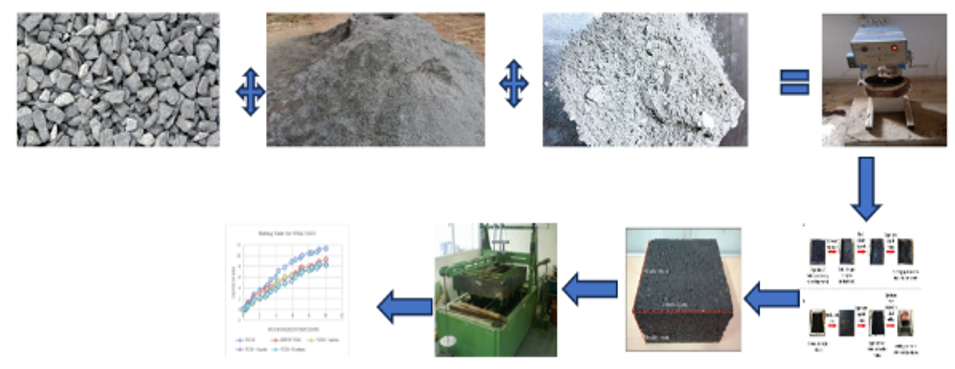Comparative rutting analysis of hot mix Asphalt and warm mix Asphalt incorporating Bitumen additives

Keywords:
civil engineering, concrete, Bitumen Additives, Hot Mix Asphalt (HMA) , warm mix asphalt (WMA), Pavement durability, Rutting analysisAbstract
Rutting, or the permanent deformation of the road surface, is a common problem that affects the performance and safety of roadways, particularly in regions with high temperatures and heavy traffic loads. The study analyzed rutting performance in asphalt mixtures using different binders and additives. The research focuses on comparing Hot Mix Asphalt (HMA) and Warm Mix Asphalt (WMA) in terms of rut depth performance. A series of tests involving different types of bitumen, including modified bitumen (Polymer Modified Bitumen - PMB40) and unmodified bitumen (Viscosity Grade - VG30), as well as the influence of RTFOT aging on rutting performance were conducted. The effects of additives such as Advera (0.25%), Sasobit (2.5%), and Evotherm (0.7%) were also examined. Results indicate that WMA consistently exhibited lower rut depths compared to HMA, suggesting its improved resistance to rutting. Additionally, the incorporation of additives, particularly Evotherm and Sasobit, demonstrated the potential to further enhance rutting resistance in WMA. These findings emphasize the significance of binder selection and additive incorporation in mitigating rutting issues and pavement durability especially in regions with high temperatures and heavy traffic. This research contributes to the ongoing efforts to develop resilient and sustainable asphalt pavements, ultimately improving transportation infrastructure performance.
URN:NBN:sciencein.jist.2024.v12.743
Downloads
Downloads
Published
Issue
Section
URN
License
Copyright (c) 2023 Harsh Rathore, Sharad Kumar Soni

This work is licensed under a Creative Commons Attribution-NonCommercial-NoDerivatives 4.0 International License.
Rights and Permission



